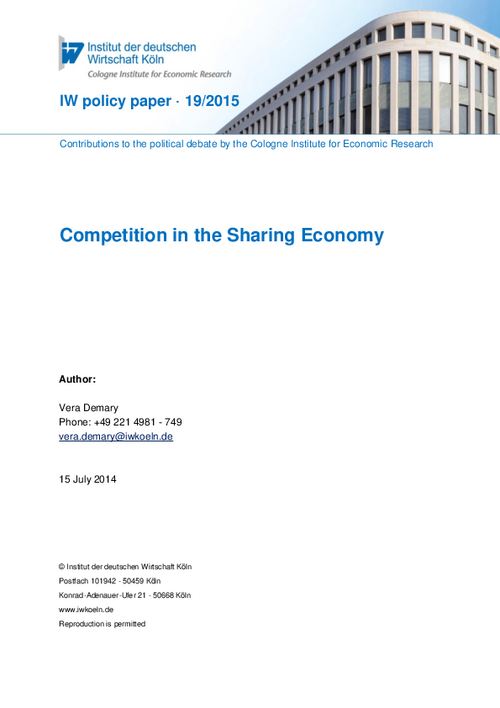Sharing goods, services or knowledge is at the center of the so-called Sharing Economy. Businesses are usually based on online platforms that match demand and supply which is in many cases, but not always provided by individuals. Sharing Economy companies typically compete with traditional companies in many different markets. The main challenge of this type of competition currently is the application of the existing regulation. While incumbent firms adhere to this, Sharing Economy companies often feel it does not apply to their business model. This paper examines the organization of the Sharing Economy and the functioning of markets and competition in it. Europe is lagging behind the United States with respect to the diffusion of Sharing Economy businesses and the number of successful companies. Therefore this paper also offers policy advice from a European perspective to level the playing field between traditional and Sharing Economy companies and to promote the formation of the latter in Europe.

Competition in the Sharing Economy
IW policy paper


Vera Demary: Competition in the Sharing Economy
IW policy paper

More on the topic
The anti‑steering provision of Article 5 (4) of the DMA: a law and economics assessment on the business model of gatekeepers and business users
Data is a success factor for digital platforms and the core of their business model. The rationale behind this is that data allows for improving the matching process between users which creates value for the platform.
IW
Industrial policy at the turn of the times
The current debate on industrial policy vacillates between the extreme positions of an orthodoxy of rejecting state action and a naive belief in the state's ability to control structural change.
IW